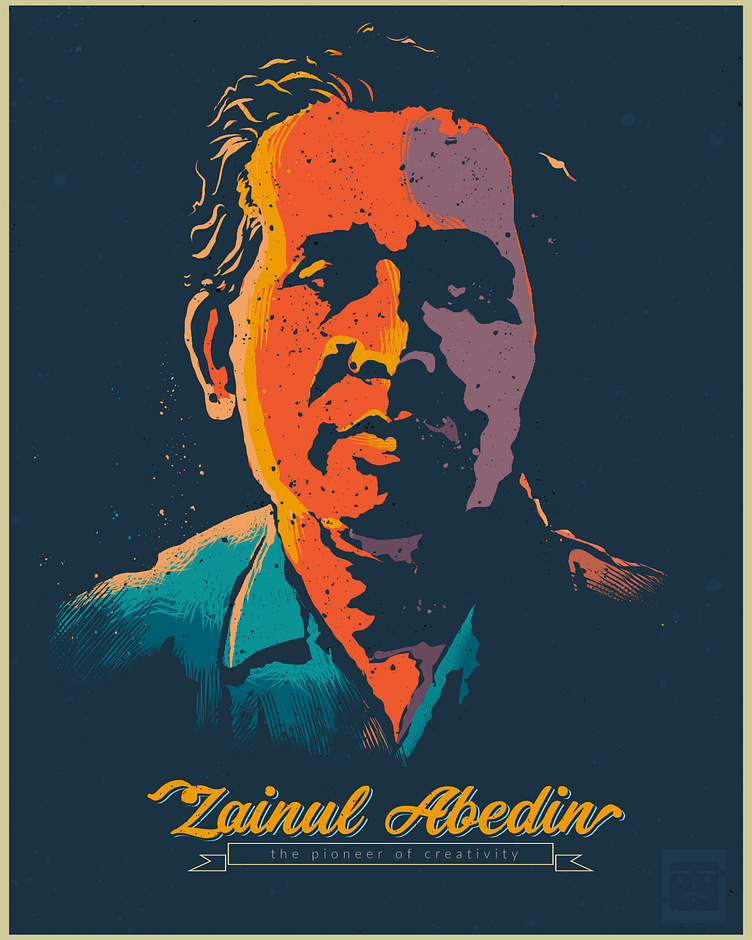Zainul Abedin || Vintage Poster Portrait
Zainul Abedin (1914-1976) was a pioneering Bangladeshi artist widely regarded as the father of modern art in Bangladesh. He played a pivotal role in shaping the artistic landscape of the country and was a prominent figure in the art movements of the Indian subcontinent. Abedin's contribution to art, particularly through his social realism and portrayal of the plight of the common people, remains highly influential.
Born in Mymensingh, Bangladesh, Abedin showed an early interest in art. He received his formal art education at the Government School of Art in Kolkata, India, where he studied under renowned artists Abanindranath Tagore and Nandalal Bose. The influence of these masters, along with his exposure to European art movements, such as the Bengal School and the Indian Society of Oriental Art, laid the foundation for Abedin's artistic journey.
One of Abedin's most significant periods was his involvement with the Famine Art Movement during the Bengal Famine of 1943. Witnessing the devastating impact of the famine, Abedin was moved to depict the suffering and anguish of the people through his art. His iconic painting "Famine '43" captured the stark reality of the famine and brought international attention to the plight of the affected population.
Abedin's artistic vision expanded beyond the famine to encompass broader social issues. He believed in art as a medium of social commentary and sought to portray the struggles and aspirations of the common people. His works often depicted rural life, poverty, political unrest, and the spirit of resilience in the face of adversity. Abedin's style was marked by his strong draughtsmanship, attention to detail, and expressive use of lines and forms.
In 1948, Abedin co-founded the Bangladesh Society of Oriental Arts, which later evolved into the Institute of Fine Arts, University of Dhaka. As a teacher, Abedin played a vital role in nurturing young artists and shaping the art education system in Bangladesh. His dedication to teaching and mentorship left a lasting impact on generations of artists who followed in his footsteps.
Abedin's influence extended beyond his own artworks and teaching. He actively advocated for the recognition and promotion of Bangladeshi art at home and abroad. He participated in numerous international exhibitions and received accolades for his contributions to art. Abedin's work continues to be celebrated globally, and his paintings are exhibited in renowned museums and galleries worldwide.
In recognition of his immense contributions to art and culture, Abedin was honored with numerous awards, including the prestigious Ekushey Padak (the highest civilian award in Bangladesh). His artistic legacy remains an integral part of Bangladesh's cultural heritage, and his pioneering role in establishing a distinct identity for Bangladeshi art is widely acknowledged.
Zainul Abedin's passion, social consciousness, and artistic talent made him a beloved figure in the art world. His commitment to portraying the struggles and aspirations of the common people and his significant contributions to art education have left an indelible mark on the artistic landscape of Bangladesh. Abedin's legacy continues to inspire artists, promote social awareness, and foster cultural pride in Bangladesh and beyond.
